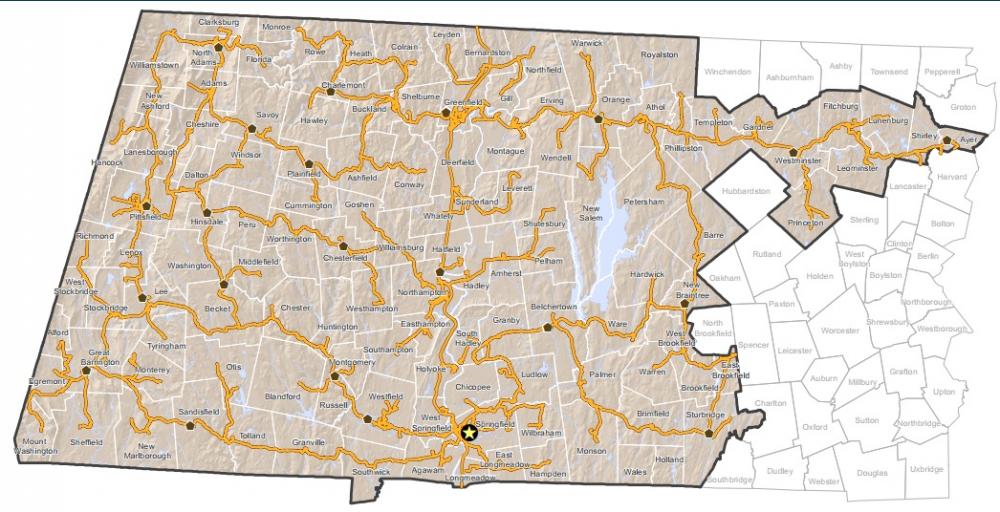The effort to bring broadband internet service to rural communities in western Massachusetts is showing some progress, eight years after the original legislation was signed.
Earlier this year, the Baker Administration re-launched the so-called Last Mile project. That followed months of infighting about how best to proceed.
LAST YEAR: Wired West, Mass. Broadband Institute At Odds Over ‘Last Mile’
In a lot of these towns, the only way to get reliable internet has been to head to places like the local library. This has a clear economic impact for businesses, and towns trying to attract new residents — and keep old ones from moving.
This summer, the state reached a deal with two cable providers to expand broadband service in a dozen towns, which they already partially served. Six more communities are undergoing utility pole surveys, which measure how ready a town’s infrastructure is for a network.
“We’re engaged with the unserved communities that we believe will be served in short order. Short is a relative term,” said Peter Larkin of the Massachusetts Broadband Institute, the quasi-state agency created eight years ago to lead this effort. “We’re all engaged with honest conversations with each town that is willing to go forward.”
After years of construction, the infrastructure is there to get broadband into many of these communities, but the Last Mile to bring high-speed service to homes and businesses, has been more challenging than expected.
Larkin said one key to getting the Last Mile project moving again, is giving towns more options for what their own networks will look like, to help meet their individual needs.
“Before, we were handicapped because we were trying to design one size that fit all,” Larkin said. “It was sort of unaffordable for many communities because they hadn’t gone through the due diligence of what their town finances looked like.”
And in another shift, MBI last month announced it would embrace the idea of towns taking a regionalized approach to operating and maintaining their respective networks. This could be seen as something of an olive branch to Wired West, the group of towns that originally wanted to build, own and operate a regional network. Last winter, MBI and Wired West became embroiled in a dispute over network ownership and finances, stalling progress on the Last Mile.
Now, with the state helping towns with possible construction, Wired West has changed its focus and is ready to serve in the more limited role of network operator. Spokesperson Tim Newman said Wired West has taken applications already from potential internet service providers.
“There’s certainly at least fifteen, to some number over twenty towns that I think are…if what we are able to do is what we think we can, and is attractive to them, that that the network could be that big,” Newman said.
Newman said he has been involved with the broadband movement since 2007, and said he never imagined getting high-speed internet to rural communities in Massachusetts would take so long.
